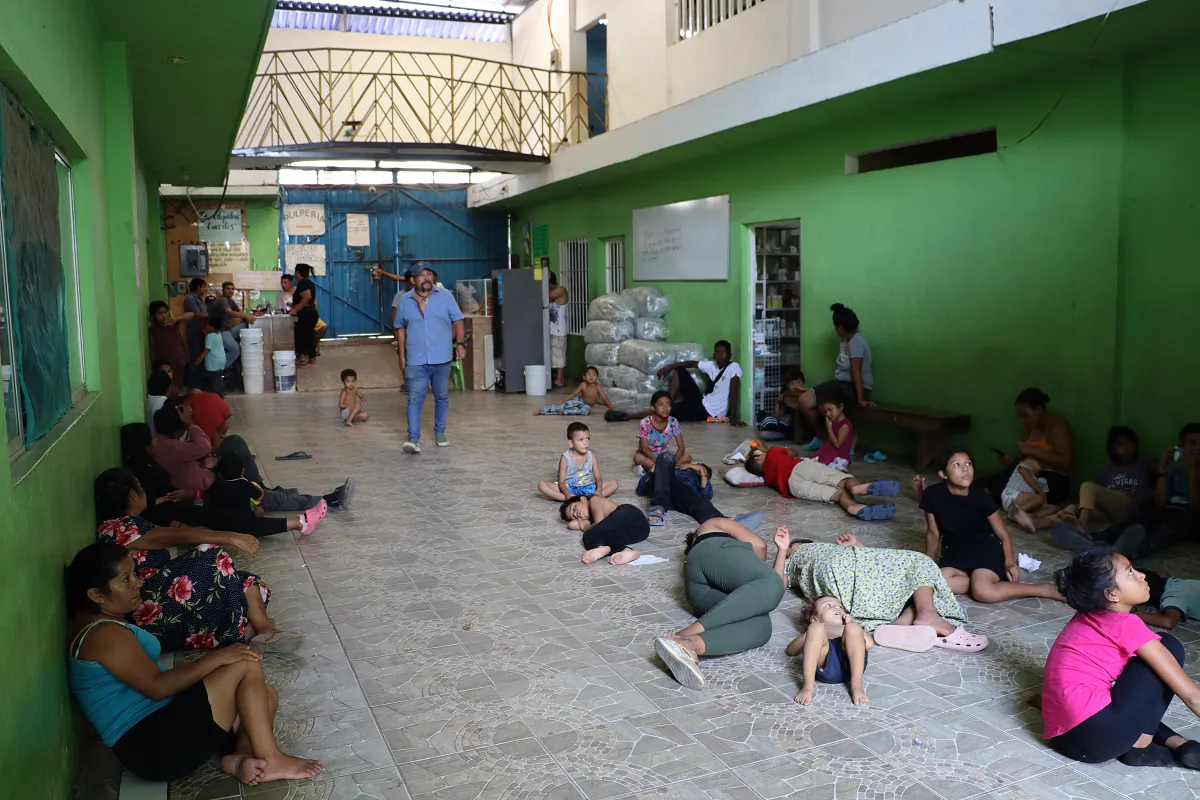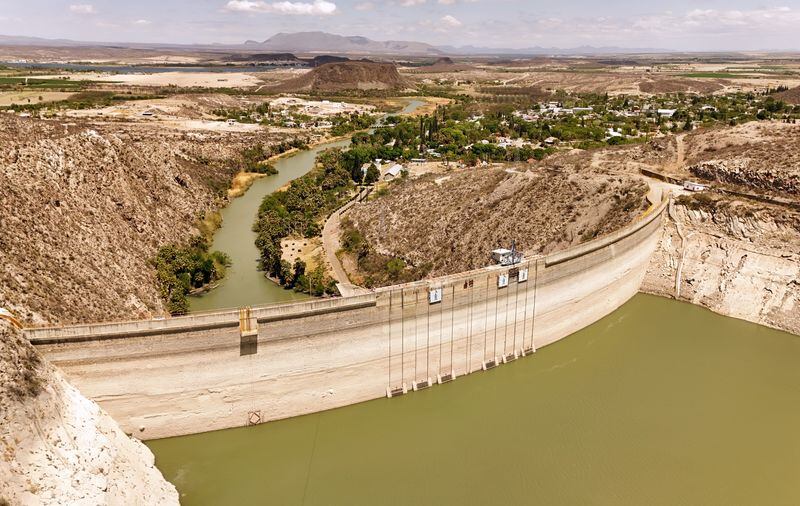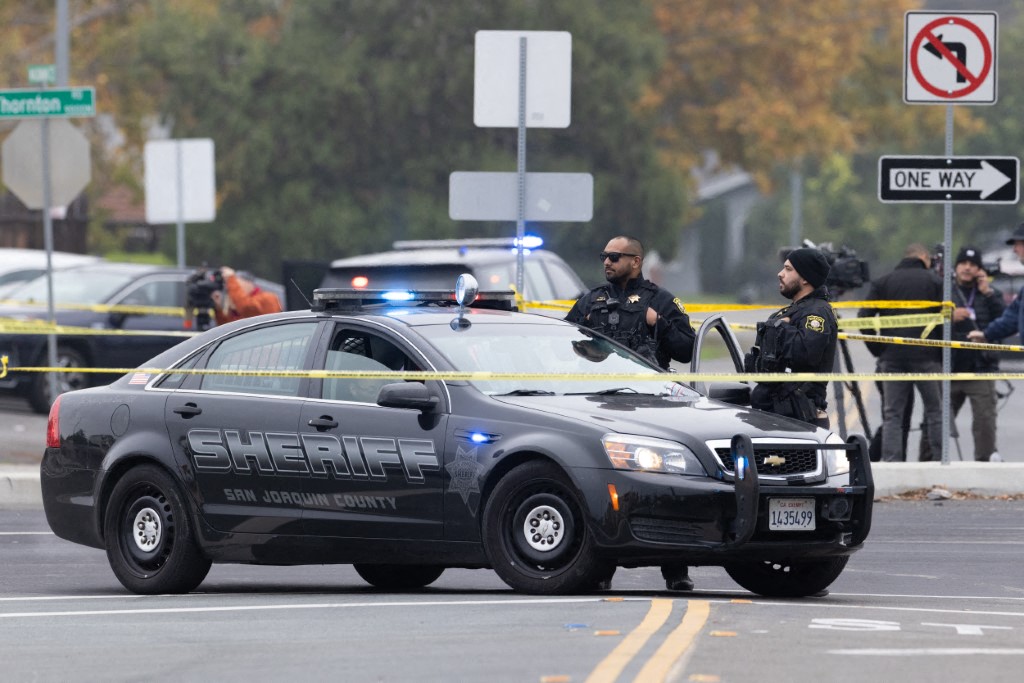International
Irregular migrants intercepted by Mexico triple in the first quarter

Irregular migration intercepted by Mexico has tripled in the first quarter of the year to almost 360,000 people in the midst of growing operations, although the Government affirms that the migratory flow has decreased.
The Mexican authorities detected 359,697 “people in irregular immigration status” between January and March 2024, an increase of 199.68% compared to 120,029 in the same period in 2023, according to the statistics available this Saturday from the Migration Policy Unit of the Ministry of the Interior.
In just three months, the Government of Mexico has intercepted almost half, 46%, of the record of 782,176 irregular migrants it detected in all of 2023, when this flow rose by 77% annually.
The main country of origin of migrants is Venezuela, with 89,718 registered, almost one in four of the total, 24.94%.
It is followed by Honduras (37,323), Ecuador (36,956), Guatemala (36,934), Colombia (21,534), Nicaragua (18,711), El Salvador (17,720), Haiti (16,791) and Cuba (10,464).
The figures are disseminated after a joint statement by the presidents of the United States, Joe Biden, and Mexico, Andrés Manuel López Obrador, who agreed to “work together to immediately implement concrete measures in order to significantly reduce irregular border crossings.”
As a achievement, López Obrador said last Thursday that the capture of undocumented people have fallen by more than 50% on the border with the United States, which reported about 12,000 daily in December and in April it fell to an average of 5,812.
The tension over migration has increased this year because the presidential elections of Mexico and the United States coincide, but the Mexican president denied that he tightens controls due to pressure from the United States.
“No, it’s just that I don’t let myself be pressured by anyone, Mexico is an independent country and the president of Mexico acts freely, he is not a scoundrel of any foreign government,” he said.
Tapachula, the largest city on the southern border of Mexico, still suffers from the phenomenon, although some activists point out that the number of migrants on the streets has decreased.
Gerver Bermúdez, administrator of the Jesús el Buen Pastor shelter in Tapachula, considered that the presence of foreigners has decreased, but they have not stopped arriving in the city, where they are four or five days and follow their route because the authorities are not giving them transit permits.
“The shelter is always full and the goal is to support everyone who comes as an immigrant. We have handled between 800 and 900 people of different nationalities such as Hondurans, Venezuelans, Nicaraguans and Ecuadorians,” he told EFE.
On the other hand, Cecilia Izaguirre, human rights defender in Tapachula, stressed that the presence of so many foreigners is no longer very visible.
“People no longer stay in Tapachula, because they came to be here to do their Comar procedure (Mexican Commission for Refugee Aid), but now they are passing by, it has decreased a little, but it has not stopped or has not decreased by a large number,” the activist said.
The Cuban Felipe Martínez, who works informally parking vehicles, explained that now the migrants “walk” from the southern border in the face of the action of the Mexican authorities.
“They go by caravan because they delay the papers a little, they fall into a state of anxiety because they want to be established in one place with their relatives, they despair, emigrate and continue to look for new horizons,” said the migrant, who is waiting for the Comar to resolve his asylum application.
On the other hand, Jorge Cruz, a Honduran who is in the Jesús el Buen Pastor shelter, considered that migration remains normal because “a lot of them always arrive every day.”
“There is always, I see that there are more people who go up and up, it has not come down, a lot of people enter, a lot of people also enter the shelter, there are children and women, who are supported come and go,” he said.
International
Police investigate deaths of Rob Reiner and wife as apparent homicide

The Los Angeles Police Department (LAPD) is investigating the deaths of Hollywood actor and filmmaker Rob Reinerand his wife as an “apparent homicide,” amid a wave of tributes to the director of classics such as When Harry Met Sally.
According to U.S. media reports on Sunday, Rob Reiner and Michele Singer Reiner were found dead at their Los Angeles mansion with what appeared to be stab wounds.
Several political figures shared messages of condolence following the reported deaths of the director of A Few Good Menand his wife.
While the LAPD did not officially confirm the identities of the victims, it stated that homicide detectives were dispatched to the Reiner residence.
“At this time, no additional details are available and the investigation into an apparent homicide is ongoing,” the Los Angeles Police Department said in a statement posted on social media.
LAPD Deputy Chief Alan Hamilton told reporters that no arrests have been made and that no individuals are currently being questioned as suspects.
“I’m not going to confirm whether anyone is being questioned at this moment or not. We are going to try to speak with as many family members as we can,” Hamilton said.
CNN reported that a family spokesperson confirmed the deaths of Reiner and his wife.
California Governor Gavin Newsom, former U.S. President Barack Obama, and former Vice President Kamala Harrisissued statements expressing their condolences.
International
U.S. and Mexico Reach Deal to Address Water Deficit Under 1944 Treaty

The United States and Mexico have reached an agreement to comply with current water obligations affecting U.S. farmers and ranchers and for Mexico to cover its water deficit to Texas under the 1944 Water Treaty, the U.S. Department of Agriculture said in a statement.
The department уточified that the agreement applies to both the current cycle and the water deficit from the previous cycle.
On Monday, U.S. President Donald Trump accused Mexico of failing to comply with the water-sharing treaty between the two countries, which requires the United States to deliver 1.85 billion cubic meters of water from the Colorado River, while Mexico must supply 432 million cubic meters from the Rio Grande.
Mexico is behind on its commitments. According to Washington, the country has accumulated a deficit of more than one billion cubic meters of water over the past five years.
“This violation is severely harming our beautiful crops and our livestock in Texas,” Trump wrote on Monday.
The Department of Agriculture said on Friday that Mexico had agreed to supply 250 million cubic meters of water starting next week and to work toward closing the shortfall.
Agriculture Secretary Brooke Rollins, quoted in the statement, said Mexico delivered more water in a single year than it had over the previous four years combined.
Trump has said that if Mexico continues to fall short of its obligations, the United States reserves the right to impose 5% tariffs on imported Mexican products.
Mexico’s Deputy Foreign Minister for North America, Roberto Velasco, said that a severe drought in 2022 and 2023prevented the country from meeting its commitments.
International
Several people shot in attack on Brown University campus

Several people were shot on Saturday in an attack on the campus of Brown University, in the northeastern United States, local police reported.
“Shelter in place and avoid the area until further notice,” the Providence Police Department urged in a post on X. Brown University is located in Providence, the capital of the state of Rhode Island.
U.S. President Donald Trump said on his social media platform Truth Social that he had been briefed on the situation and that the FBI was on the scene.
At 5:52 p.m. local time (11:52 p.m. GMT), Brown University said the situation was still “ongoing” and instructed students to remain sheltered until further notice.
After initially stating that the suspect had been taken into custody, Trump later posted a second message clarifying that local police had walked back that information. “The suspect has NOT been apprehended,” the U.S. president said.
-

 International5 days ago
International5 days agoWashington declares State of Emergency as atmospheric river brings severe flooding
-

 International5 days ago
International5 days agoU.S. to require five-year social media history from tourists under Visa Waiver Program
-

 Central America4 days ago
Central America4 days agoHonduras election crisis deepens as CNE president denounces intimidation attempts
-

 Central America5 days ago
Central America5 days agoOAS and EU urge honduran political actors to respect vote results and avoid unrest
-

 International4 days ago
International4 days agoCuba battles out-of-control dengue and chikungunya epidemic as death toll rises to 44
-

 International4 days ago
International4 days agoColombia says it would not reject Maduro asylum request as regional tensions escalate
-

 International2 days ago
International2 days agoSeveral people shot in attack on Brown University campus
-

 International14 hours ago
International14 hours agoPolice investigate deaths of Rob Reiner and wife as apparent homicide
-

 Central America1 day ago
Central America1 day agoPanama seizes over three tons of drugs hidden in Caribbean port container
-

 International4 days ago
International4 days agoEcuador on track for record violence as homicides hit highest level in Latin America again
-

 International5 days ago
International5 days agoSix ecuadorian soldiers jailed pending trial for alleged extrajudicial execution
-

 Central America14 hours ago
Central America14 hours agoOAS urges swift recount in Honduras as election results remain uncertain
-

 International2 days ago
International2 days agoU.S. and Mexico Reach Deal to Address Water Deficit Under 1944 Treaty


























